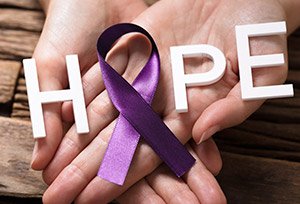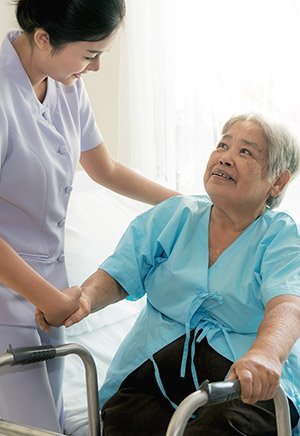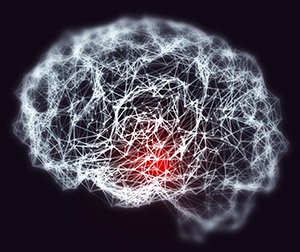September Is Alzheimer’s Disease Awareness Month | WorldAlzMonth #EndAlz #Every3Seconds
September 2018 marks the seventh World Alzheimer’s Month, an international campaign to raise dementia awareness and challenge stigma. In recognition of this campaign, Wild Iris Medical Education would like to share the following information from our friends at Alzheimer’s Disease International.
Dementia is now widely recognized as one of the most significant health crises of the 21st century. In 2018 there are more than 50 million people with dementia worldwide, and this figure will nearly triple to 152 million by 2050. World Alzheimer’s Month provides an opportunity to raise awareness about a health issue that will affect more and more people as the years pass and to encourage crucial efforts to support those already affected by the disease around the world.
World Alzheimer’s Day (September 21) was launched in 1994 to mark the 10th anniversary of Alzheimer’s Disease International (ADI) and has grown significantly since then. World Alzheimer’s Day 2017 was observed in over 80 countries, and World Alzheimer’s Month continues to attract the support of Alzheimer’s and dementia associations around the world.
What Is Dementia?

Dementia is a collective name for progressive degenerative brain syndromes that affect memory, thinking, recognition, language, planning, and personality. Alzheimer’s disease and vascular dementia are the most common types of dementia, responsible for up to 90% of cases of dementia. Symptoms may include:
- Loss of memory.
- Difficulty in finding the right words or understanding what people are saying.
- Difficulty in performing previously routine tasks.
- Personality and mood changes.
Dementia knows no social, economic, or geographical boundaries. Although each person will experience dementia in their own way, eventually those affected are unable to care for themselves and need help with all aspects of daily life. There is currently no cure for most types of dementia, but treatments, advice, and support are available.
Dementia also shares risk factors with diseases such as heart disease, stroke, and diabetes, making it an especially important issue for a wide range of health and development organizations that work around the world.
“Every 3 Seconds”
- Someone in the world develops dementia every three seconds.
- Most people with dementia live in low- and middle-income countries, with the number in some regions is expected to increase by five times by 2050. The number of people living with dementia is also expected to double in high-income countries.
- Dementia is now a trillion-dollar disease and already exceeds the market value the world’s largest companies.
Risk Reduction and Diagnosis

- Diagnosis of dementia is made too late. Earlier diagnosis is important to ensure that people living with dementia and their care partners can live as well as possible for longer and access the support they need.
- As few as 1 in 10 individuals receive a diagnosis for dementia in low- and middle-income countries, and less than 1 in 2 individuals are diagnosed in high-income countries. More people living with dementia need access to a doctor who can provide a diagnosis and help to plan necessary support.
- Risk-reduction measures and earlier diagnosis of dementia could save governments money by reducing the high cost of emergency and avoidable health interventions, improving care, and increasing the effectiveness of social, community, and other care services.
- Governments have an opportunity and a responsibility to dramatically increase awareness, detection, and diagnosis of dementia by meeting targets of the World Health Organization (WHO) global plan on dementia.
- Earlier diagnosis has the power to change the perception of dementia by illustrating that living as well as possible can be achieved with support, respect, and access to services.
- Individuals diagnosed with dementia earlier have a unique opportunity to take part in dementia research, which may identify new treatments, help to find a cure, or improve care.
Someone in the world develops dementia every three seconds.
5 Ways to Reduce Dementia Risk

Research suggests that leading a healthy lifestyle may help to reduce a person’s risk of developing dementia later in life. The general rule is what’s good for the heart is good for the brain, so both should be well looked after with a balanced diet and regular physical and mental exercise. Much of what’s needed are simple activities that individuals can include in their day-to-day lives. Remember, it’s never too late to make any of these changes.
- Look after your heart. Smoking, high blood pressure, high cholesterol, diabetes, and obesity all damage the blood vessels and increase the risk for having a stroke or a heart attack, which could contribute to developing dementia in later life. These problems can be prevented through healthy lifestyle choices and should be treated effectively if they do occur.
- Be physically active. Physical activity and exercise are powerful preventive medicines, helping us control our blood pressure and weight as well as reducing the risk of type 2 diabetes and some forms of cancer. There is also evidence to suggest that some kinds of physical activity can reduce the risk of developing dementia. The good news is that getting active is proven to make us feel good and is a great activity to do with friends and family.
- Follow a healthy diet. Food is fuel for both brain and body. We can help both to function properly by eating a healthy, balanced diet. Some evidence suggests that a Mediterranean-type diet rich in cereals, fruits, fish, legumes, and vegetables can help to reduce the risk of dementia. While more studies are needed on the benefits of specific foods or supplements, we do know that eating lots of foods that are high in saturated fat, sugar, and/or salt is associated with a higher risk of heart disease and is best avoided.
- Challenge your brain. By challenging the brain with new activities, individuals can help build new brain neurons and strengthen the connections between them. This may counter the harmful effects of Alzheimer’s disease and other dementia pathologies. How about learning a new language or taking up a new hobby?
- Enjoy social activities. Social activities may be beneficial to brain health because they stimulate our brain reserves, helping to reduce our risk of dementia and depression. Try to make time for friends and family, even combining activities with physical and mental exercise through sports or other hobbies.
To learn more about how you can help care for your patients at risk for or living with Alzheimer’s disease, take our 6–contact hour continuing education course today. And for more information and World Alzheimer’s Month campaign materials, visit Alzheimer’s Disease International.
Sign up for our newsletter email list and like us on Facebook and Instagram to be among the first to know about all our special discounts and offers!
About Wild Iris Medical Education:
Wild Iris Medical Education, Inc., is a privately held, woman-owned company providing online healthcare continuing education. In 1998, we began offering online ANCC-accredited nursing continuing education courses and since then have expanded to provide CEUs for occupational therapists, physical therapists, paramedics, EMTs, and other healthcare professionals.
Accredited and Approved Nationwide.
High-quality CEU Courses since 1998.

Join Our More Than 750,000 Satisfied Customers Now!
High-quality, accredited, evidenced-based continuing education courses in an easy-to-use format designed for learning, from Wild Iris Medical Education. We’ve been providing online CE since 1998.



